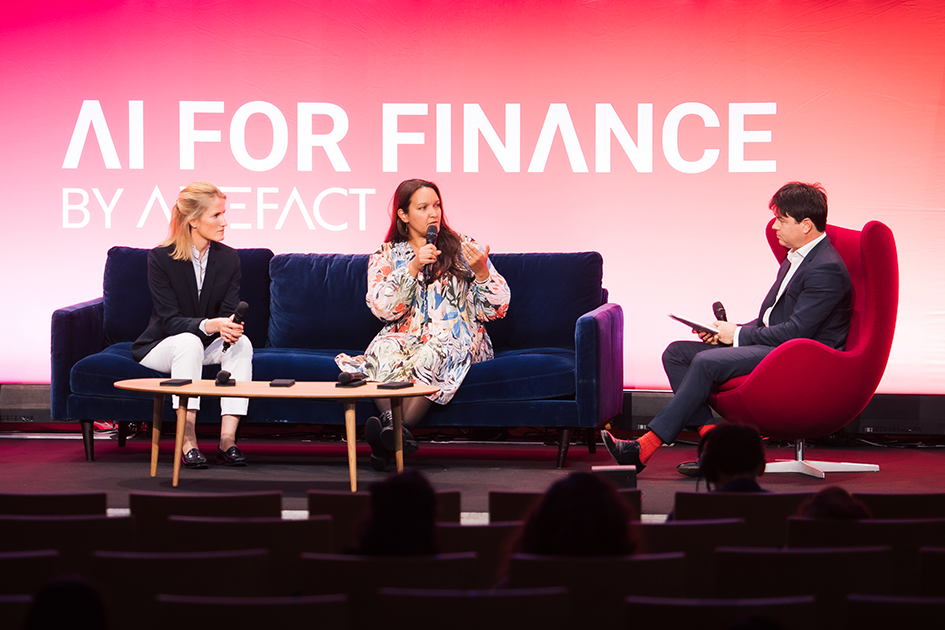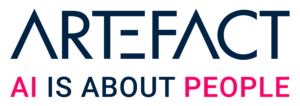AI for Finance Summit by Artefact - September 17th, 2024 - Paris
Key learnings from the panel discussion with Laure Lesage, Chief Data & Digital Officer at ODDO BHF, Lydie Percier, Chief Innovation Officer at Indosuez Wealth Management, and Alexis Baufine-Ducrocq, Partner at Artefact.
AI in private banking, current uses and strategies
Private banking is a deeply personal aspect of financial services, and both banks discussed their AI journeys. Starting with AI in 2018, one bank launched an AI-powered investment fund and utilized algorithms for targeted brokerage. The other began with NLP to summarize reports for asset managers and is now piloting GenAI use cases, such as translation, speech-to-text, and data querying.
Promising use cases in private banking
Both banks have explored a variety of AI applications. A key focus is empowering front office staff to streamline meetings, manage client activities, and provide personalized to-do lists. AI helps bankers sift through complex procedures, freeing them to spend more time with clients. However, the challenge lies in balancing high-impact use cases with operational feasibility, ensuring meaningful support for staff without overcomplicating daily workflows.
AI supporting relationship management
Trust and personalization are vital in wealth management. Rather than replacing human interactions, AI serves to enhance bankers’ abilities to support clients effectively. By starting with internal tools—such as chatbots integrated within CRMs—bankers are provided with actionable client insights to improve decision-making. Both banks see AI as a tool to augment rather than replace the personalized client relationships crucial to private banking.
Balancing innovation and ROI
Showing the return on investment for AI projects is complex, but both banks emphasize agility. The strategy involves quick, small investments with fast validation, minimizing risk and building confidence with sponsors. One bank adopted design sprints to validate concepts before large investments, while both are convinced that AI will significantly impact the industry. However, they avoid drawing quick conclusions, focusing on long-term gains.
Scaling and skills development challenges
Industrializing and scaling AI technologies remain challenging. Legacy systems, evolving tech stacks, and new skill requirements in data analytics and AI present hurdles. Both banks invest in hiring specialized talent like data engineers and ML experts, while also upskilling current employees to maintain continuity. Despite management backing, proving these investments are right is vital to unlocking broader support for AI-driven initiatives.
Ensuring user adoption and trust
One bank promotes adoption by creating stress-free environments for bankers to explore AI, starting with general use cases before moving to more specific applications. The goal is to help bankers see the value AI brings to their professional lives. For training, scenarios are role-played to show how AI can assist with client acquisition and other tasks. The second bank emphasizes leadership involvement, training top management on AI, fostering data and AI communities, and regularly hosting awareness events to share success stories and facilitate learning. The banks prioritize different tiers of training—both broad-based and expert-focused—to build trust and adoption among employees.

 BLOG
BLOG



